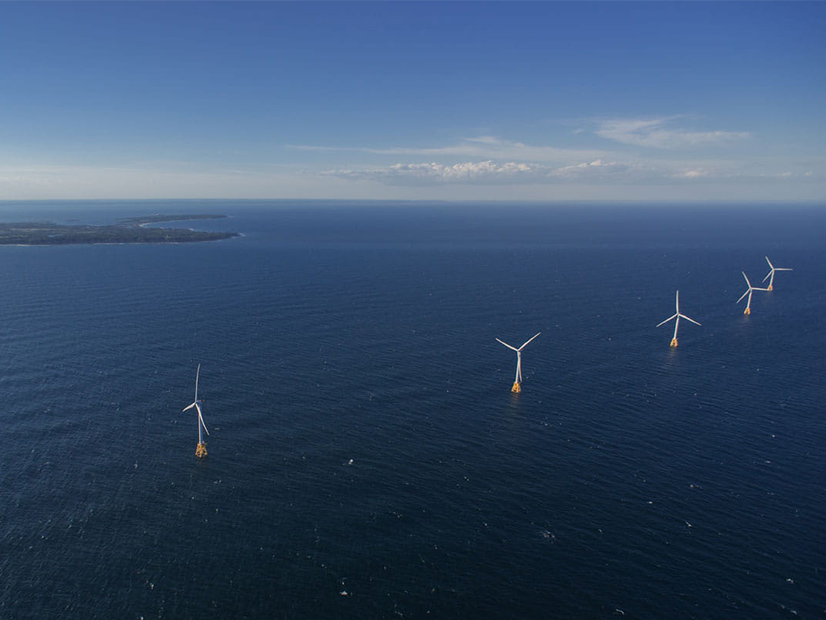ISO-NE and NEPOOL jointly filed updated offer review trigger price (ORTP) values with FERC on Wednesday for Forward Capacity Market (FCM) parameters in the 2025/26 capacity commitment period (ER21-1637).
Filing under the “jump ball” provision of the Participants Agreement gives the RTO’s proposal and a stakeholder-backed alternative equal legal standing and provides the commission with discretion and latitude to adopt either measure. Both proposals accommodate changes and extensions to the federal tax credits for solar and wind developers passed by Congress in December.
ISO-NE’s ORTP proposal, created in concert with consultants Concentric Energy Advisors and Mott MacDonald, did not curry favor with stakeholders at a March 24 meeting of the NEPOOL Participants Committee. The consultants modified their treatment of tax credits in the discounted cash flow model, resulting in a revised ORTP value for solar resources. The RTO also made minor changes to each of its proposed ORTP values for the 16th Forward Capacity Auction because of the updated performance payment rate (PPR) value. Proposed tariff revisions include $1.381/kW-month for solar and removal of ORTP values for solar-plus-batteries resources. Despite the modifications, only 19.04% voted in support during a sector-weighted vote.
The PC did, however, approve modifications to ORTPs and tariff revisions from stakeholders. The first, from the Union of Concerned Scientists on behalf of RENEW Northeast, revised its proposed lithium-ion battery ORTP from $2.612/kW-month to $2.601. This reduction resulted from the ISO-NE modified PPR value for FCA 16. The second, from Advanced Energy Economy, Borrego Solar Systems, Enel X, ENGIE North America and RENEW Northeast, revised previously supported tariff revisions. They passed with 72.5% PC support. (See NEPOOL Participants Committee Votes on ORTP Values.)
“The NEPOOL alternative reflects that renewable energy and battery storage resources are already competitive and should not be subjected to [ISO-NE’s] administrative screen that uses artificially inflated cost estimates for these resources that could exclude them from the market,” Francis Pullaro, executive director of RENEW Northeast, said in an emailed statement. “[The RTO’s] proposal to erect barriers to participation in the market by renewable energy, particularly offshore wind, will only result in making prices artificially high for consumers while perpetuating financial advantages to conventional generators.”
Not a MOPR Referendum
ISO-NE told FERC that the filing should not be viewed as a referendum on the minimum offer price rule (MOPR). The RTO said its evaluation of the competitive cost of new entry (CONE) for offshore wind follows the same approach for calculating the ORTP for all technologies. In contrast, the NEPOOL proposal sets “an artificially determined ORTP at zero” for both OSW and solar, which is “functionally equivalent to having no MOPR … regardless of their true costs of entry.”
The RTO said that without an ORTP, the Internal Market Monitor would review no new capacity supply offers, and because OSW and solar are expected to dominate new entry in New England, setting the ORTP to zero would eviscerate the MOPR. It added that many New England states and stakeholders seek the elimination of MOPR, and that it recognizes the region must address concerns about the FCM’s failure to account for the capacity provided by sponsored resources that do not clear the market because of the rule.
“To be clear, ISO-NE intends to work with the states and stakeholders to achieve the elimination of the MOPR in a manner that maintains reliability,” ISO-NE wrote. “We understand the urgency felt by some stakeholders regarding the elimination of the MOPR. Nonetheless, we ask the commission to provide the region with the time needed to address such significant market changes, and not to uphold arguments that would seek to indirectly eliminate the MOPR through the adoption of inaccurate ORTPs.”



